HP Chromebook 11 Review
by Anand Lal Shimpi on October 15, 2013 2:45 AM EST- Posted in
- Laptops
- HP
- Chrome OS
- Chromebook
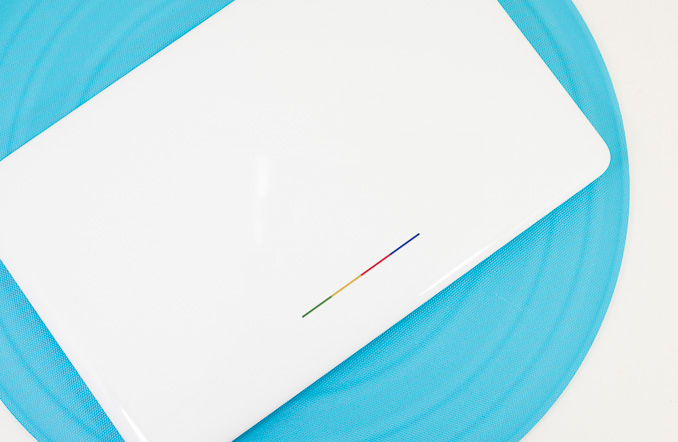
We’re in the midst of a netbook renaissance. Armed with lighter weight OSes, faster hardware and a better appreciation for what matters in a consumer device, OEMs are giving the concept another try.
Just like before, we’ll see solutions based on Windows as well as open source OS alternatives. The most viable candidate in the latter category is Google’s own Chrome OS. In the old days if all you needed was to be able to browse the web, you had to buy a PC. Now you have more options. For those users who really just need access to the web, email and perhaps editing documents, Chrome OS is a real alternative.
What you give up in backwards compatibility with legacy applications, you get in the form of simplicity and security. Google controls all updates to Chrome OS, which are delivered seamlessly in the background. You also get all of the security benefits of sandboxing that are otherwise reserved for devices running Android or iOS. Chrome OS is the type of platform you can recommend to someone and never have to worry about them coming back to you with a virus or malware infested PC.
| HP Chromebook 11 Specifications | |||||||||
| Dimensions | 297 x 192 x 17.6 mm | ||||||||
| Display | 11.6-inch IPS 1366 x 768 | ||||||||
| Weight | 2.3 lb/ 1.04 kg | ||||||||
| Processor | Samsung Exynos 5250 (dual-core Cortex A15 1.7GHz + ARM Mali-T604 GPU) | ||||||||
| Connectivity | 2 stream dual-band 802.11n, Bluetooth 4.0, 3G/4G LTE optional | ||||||||
| Memory | 2GB DDR3 | ||||||||
| Storage | 16GB eMMC | ||||||||
| Battery | 30Wh | ||||||||
| I/O | 2 x USB 2.0, VGA webcam, microUSB for charging/SlimPort video out, headphone/mic jack | ||||||||
| Starting Price | $279 | ||||||||
With the exception of the Chromebook Pixel, Google has done a great job of curating excellent low-cost hardware that runs Chrome OS. Last year’s Samsung Chromebook redefined what you should expect in terms of build quality and design from a sub-$300 notebook. This year we get a spiritual successor to that device.
Design & Chassis
The HP Chromebook 11 keeps the same 11.6-inch form factor as last year’s device, but upgrades it in almost every way imaginable. Let’s start with the chassis:
Exotic materials are pretty much out of the question for something priced at $279, so the Chromebook 11 boasts a magnesium reinforced plastic chassis. The internal magnesium frame helps reduce flex, and I’m happy to say that the result is one solid feeling device.
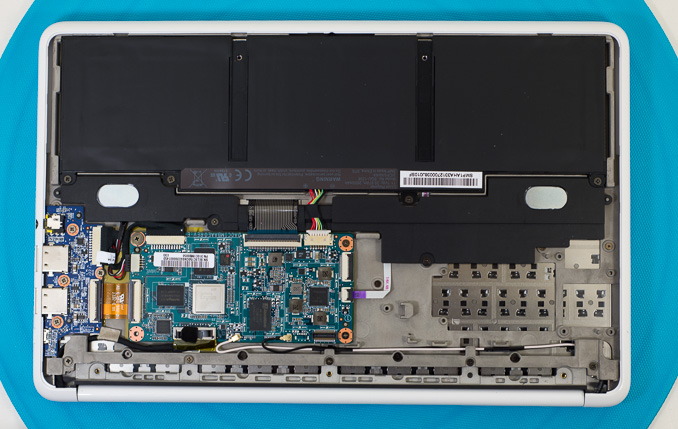
The motherboard screws into a magnesium frame
The plastic exterior is glossy, which unfortunately means it’s going to be a fingerprint magnet. That’s honestly my only complaint about the design though, the rest is extremely well executed down to Chrome color strip lit by the display’s backlight on the back of the machine.
As with most mainstream devices these days, Google used little touches of color to personalize the device. The Chromebook 11 is available in black (no accents), or white with four accent colors (blue, red, yellow or green). The accent colors are visible around the keyboard as well as underneath the notebook.
Google is particularly proud of the lack of any visible vents, screws or speakers. The Exynos 5250 SoC is passively cooled (just like it would be in a tablet), which reduces the need for any large vents. Under heavy load the machine does get surprisingly warm, with the upper left region of the Chromebook 11 hitting 46C in my testing - a reminder of just how much power a pair of ARM Cortex A15 cores can draw under load. Pulling off the bottom of the machine it's clear why there's so much heat transfer, Google uses the bottom plate as a heat spreader with a bit of thermal interface material making direct contact to the Exynos 5250 SoC:
The bottom of the Chromebook 11 snaps on, hence the lack of any visible screws. The only screws in the Chromebook 11 are hidden by the strips of accent color on the back. The large strip snaps on, while the thin strip is held on by adhesive:
Finally, the speakers port up through the keyboard just like they would on a MacBook Air (all while providing surprisingly full sound).
The Apple comparisons don’t end there. Unlike most laptops in the Chromebook 11’s price range, the chiclet keyboard is awesome. You’d be hard pressed to tell the difference in spacing, key travel or feedback between the 11’s keyboard and that of an rMBP. It used to be that you’d have to spend tons of money to get a notebook with a good keyboard, Google seems devoted to fixing that.
In fact Google seems to want to address most of the issues that plagued mainstream PCs with its low-cost Chromebooks. There’s no mechanical storage inside the Chromebook 11, instead settling on a 16GB eMMC solution (once again provided by SanDisk) that enables extremely fast boot and predictable application launch times. You obviously don’t get a ton of local storage, but as with all Chromebooks you’re expected to either not have a ton of local storage needs, rely on external USB storage, or toss everything into the cloud. In pursuit of the latter, Google offers all Chromebook 11 customers 100GB of free storage on Google Drive for 2 years after the feature is manually activated (you have 60 days to activate).
I won't go into too much detail on Chrome OS other than to say that Google is slowly but surely trying to address my biggest concerns about the OS. You can finally run applications offline and outside of a browser window, which makes a lot of sense (I really don't want to have to do math in a Chrome window), but the list of offline applications is woefully short at this point. Chrome OS remains a great solution for those users who really spend all of their computing time inside Chrome browser windows and aren't huge on multi-window, multi-tasking usage models. It may sound limited, but for a big chunk of the mainstream PC market it's actually nearly spot on. Plus you get all of the benefits of Chrome: sandboxing, security and an always up-to-date/lightweight platform.
For the more enterprising users, the Chromebook 11 can just as easily be rebooted into developer mode by hitting esc + switch (F5) + power, then hitting Ctrl + D when prompted/at every subsequent boot. Developer mode, as always, gives you lower level access to the platform - including the ability to get to a command prompt.


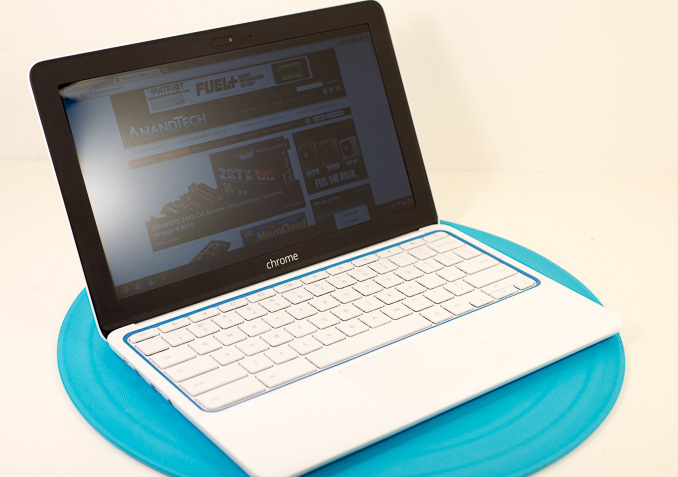
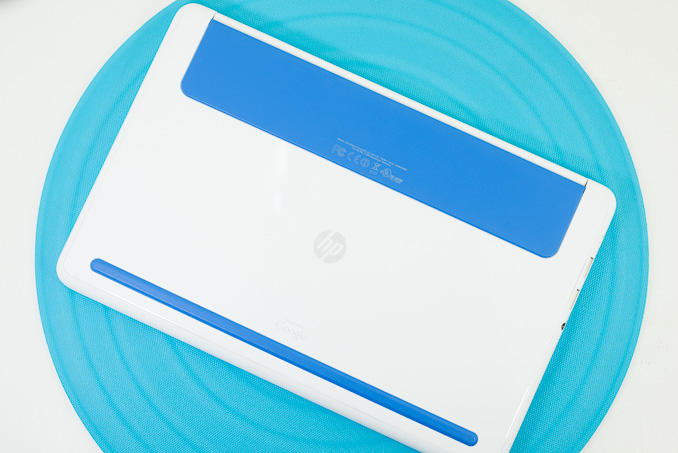
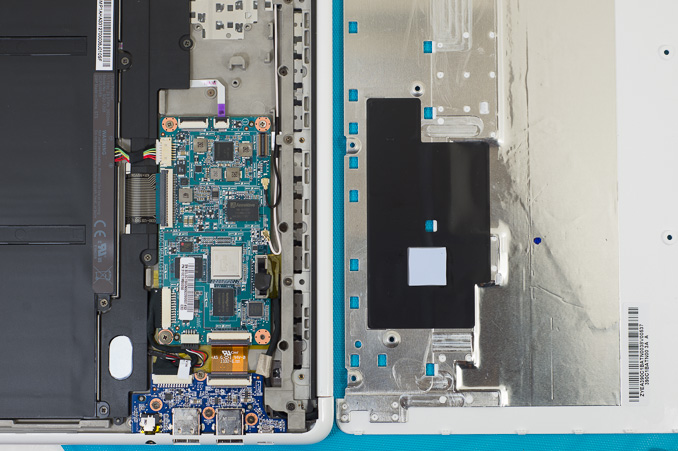
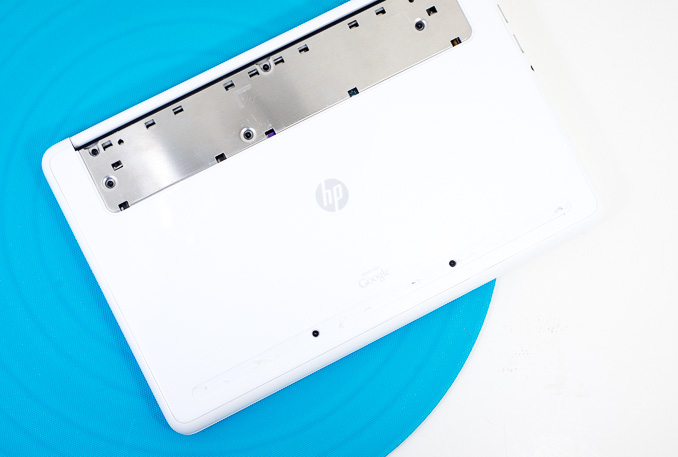
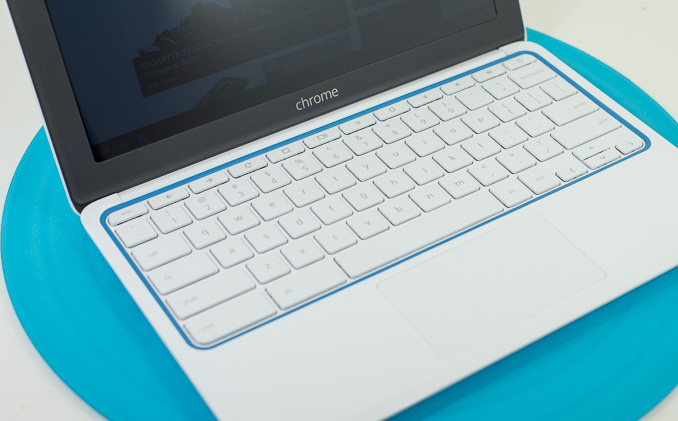
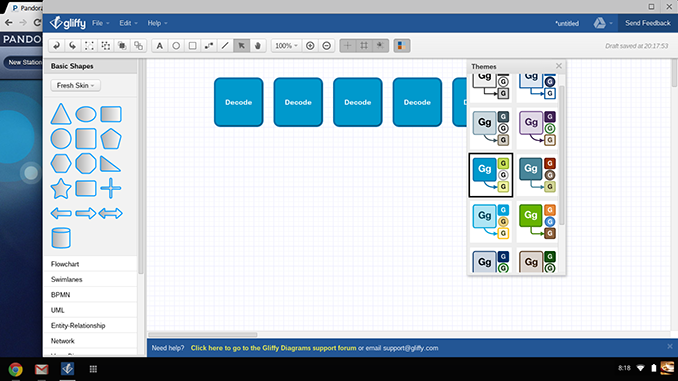
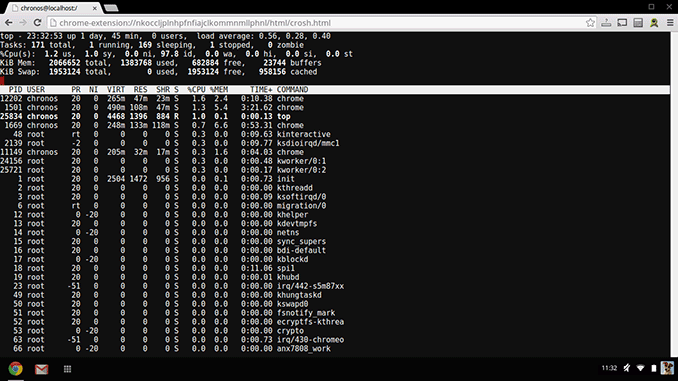








90 Comments
View All Comments
lightsout565 - Tuesday, October 15, 2013 - link
Yes, I believe you can.https://support.google.com/chromebook/answer/18310...
lightsout565 - Tuesday, October 15, 2013 - link
If only it had Bay Trail... Sigh.I was very disappointed by the batter life figures. The HP Chromebook 11 and the Asus T100 both have nearly identical battery sizes (30 Wh vs 31Wh respectively) but the Asus has a reported 11 hours of battery life. Clearly Windows 8/BayTrail just blow the ChromeOS/Exynos away when it comes to power managment.
Do you plan on reviewing the Asus T100? Thanks and awesome review!
shwetshkla - Tuesday, October 15, 2013 - link
I have a genuine question.. why don't chromebooks use amd chips?? It might further lower the costs. :/shwetshkla - Tuesday, October 15, 2013 - link
and have enough power for chromeOS.DanNeely - Tuesday, October 15, 2013 - link
The same reason AMD has such a tiny mobile share in general. Their chips need significantly more power for a given performance level.Krysto - Thursday, October 17, 2013 - link
I would go for AMD chips, if they move to 14nm FinFET, as soon as it's available in 2015 (or even next year if that Samsung 14nm chip is real for 2014, but I doubt it).epr118 - Tuesday, October 15, 2013 - link
Why didn't you have the Samsung Chromebook from last year in the comparison? You say this is the successor to it, so I would like to see how favorably/unfavorably in performs. I can assume the display and build quality are better, with the performance around the same.jaydee - Tuesday, October 15, 2013 - link
It's an interesting device, but for someone like me, who has an iPad, I don't really see much that a Chromebook can do that I can't with a tablet+bluetooth keyboard. Sure there are a few applications where you can really use the touchpad, and there are certain apps that you just can't do on a mobile OS, but going to my desktop isn't that inconvenient for those things.If you don't have a tablet already, then I can see the draw, but for a household that has a tablet, a laptop and a desktop, I'm not sure where this fits in. A real laptop is much powerful and has 90% of the mobility of a Chromebook at maybe 150% of the price (~$450 is a decent base price for a basic i3 laptop). A real tablet is much more mobile, with the same amount of power, 90% of the application at about the same price. I can maybe see this in a household that has a desktop and wants something to blur the lines between laptop/tablet at a low price point, but I don't think there's that much of a market.
kyuu - Tuesday, October 15, 2013 - link
ChromeOS is less fully featured than any OS, whether you're talking full Windows, Windows RT, iOS, or Android. It really has no reason to exist other than to push Google's cloud services.mschira - Tuesday, October 15, 2013 - link
Yea Chrome OS is an odd beast. I wonder if the same hardware with android installed would be a better choice?Then again lack of features is the point of Chrome OS. Less features means less can go wrong.
Good for grannies I guess.
M.